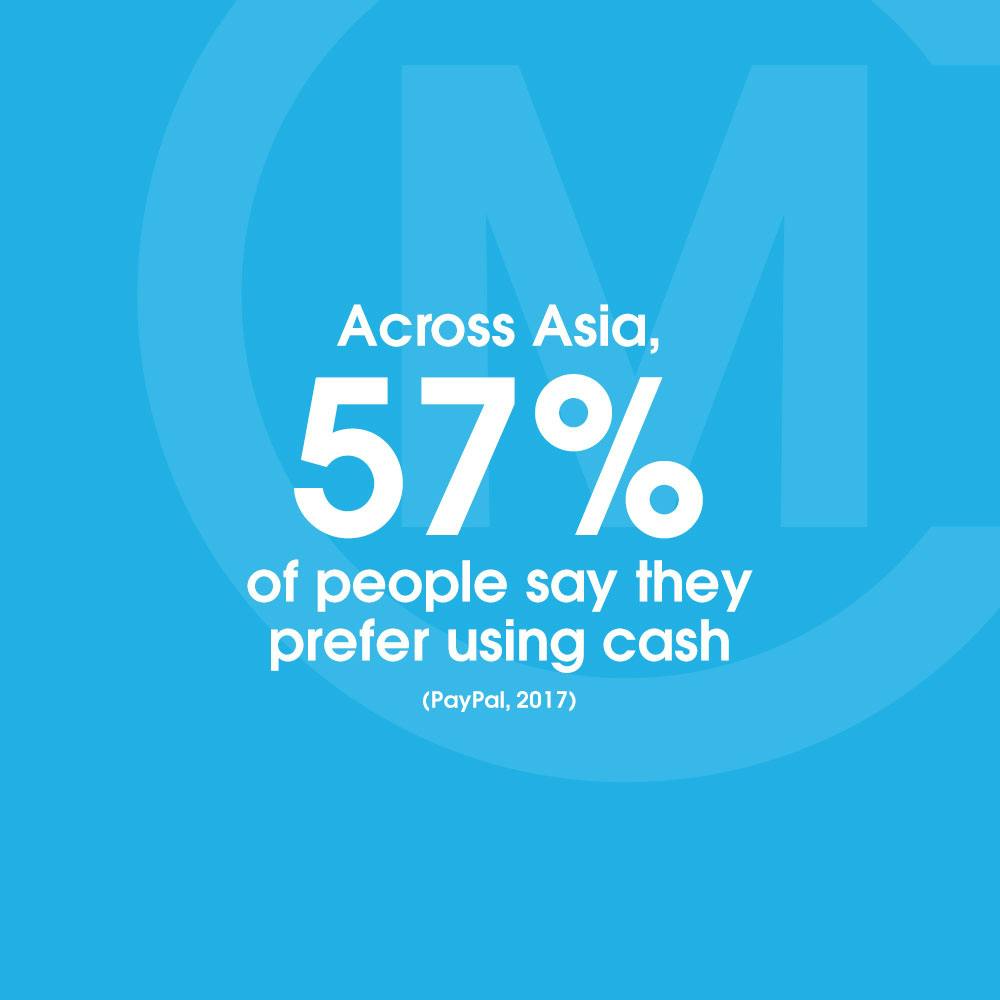
Cash is preferred by 57% of people across Asia, says Paypal
A survey by PayPal published in 2017 reveals that cash remains the preferred mode of payment across Asia, even with digitisation growth.
Despite being a primarily motivated with encouraging digital payments, this PayPal study provides insight into the public's entrenched preference for cash.
Key findings include:
- Across Asia, 88% of those surveyed use cash as a mode of payment.
- When asked which payment method they used most often, 57% answered cash, compared to 12% who said e- or mobile wallets and just 1% who cited contactless payments via mobiles.
The first recorded use of paper money was in the 7th century in China. Centuries later, the presence of cash in everyday life continues throughout the region. Across Asia, 88% of those surveyed use cash as a mode of payment.
Excerpts from CNBC: Mad Money article
Cash still matters, and it won't go away anytime soon, according to the chief technology officer at PayPal.
Cash is still king even as digital payments are set to rise,
Last year, a study from consulting firm Capgemini and bank BNP Paribas predicted that by 2020, people around the world would make about 726 billion transactions using digital payment technology.
Cash is king
Last August, a PayPal study found cash was still king in Asia, with China being an outlier where majority of the respondents said they preferred using digital payments. The European Central Bank said in November that a majority of people in the Euro area used cash when paying for goods and services in 2016 — especially for small-value items below 15 euros ($17.62).
Even then, it would not be easy to dislodge cash from society and move solely to digital payments, according to David Ng, a principal at investment firm B Capital Group's Singapore office.
"Cash is going to be around for a bit, especially in many emerging markets,"
But a systematic push from governments and the availability of good digital payment platforms, like WeChat Pay and M-Pesa, might drive more people toward cashless transactions, he said. Even then, "consumers will still choose a hybrid of both," he added.
Related articles
PYMNTS Despite Demonetization, Cash Still Thrives In India (June 8, 2018) In November 2016, the Indian government issued a ban on the nation’s higher denomination 500- and 1000-rupee notes, essentially deeming 86 percent of its currency invalid. But to date, India’s demonetization policy has not achieved its goals. Hugo Erken and Wim Boonstra, senior economists at Netherlands-based financial services firm Rabobank, explain how the Indian the government failed to lay the proper groundwork before implementing a nationwide cash ban.
CNBC MadMoney: 'PayPal CFO on mobile opportunity'

